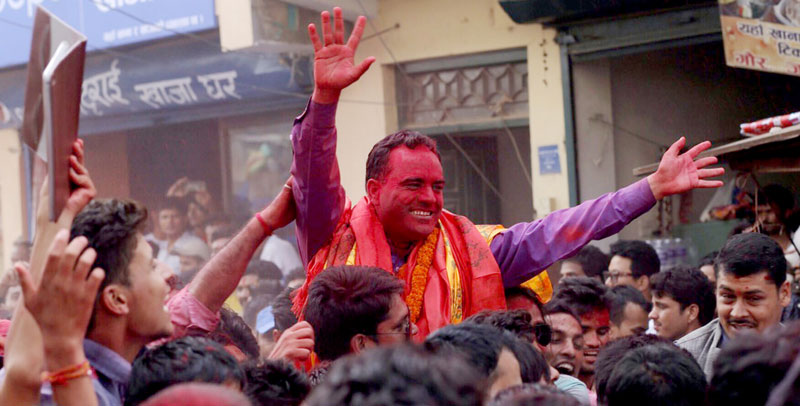
OR
Student unions form taskforce
Published On: September 2, 2016 05:17 PM NPT By: Republica | @RepublicaNepal

KATHMANDU, Sept 2: Student unions have formed a taskforce for holding election of the Free Students' Union (FSU) on time.
A joint meeting of 10 different student unions held under the chairmanship of Nepal Student Union President, Nainsingh Mahar, took the decision to form a taskforce comprising representatives from all the student unions for the implementation of the achievements of the student agitations and to determine the upcoming road map.
In a joint press statement, student unions have demanded the government and the concerned stakeholders to implement the Supreme Court verdict on giving 45 per cent categorized scholarships for medical students.
The students have also asked the government to take steps to manage the lives of quake-stricken and keep the order in the market by maintaining the quality and prices of daily essential commodities in the backdrop of fast approaching festive season. RSS
You May Like This

Student unions padlock PABSON, NPABSAN offices
KATHMANDU, May 3: Demanding revocation of the hiked tuition fees, five student unions affiliated to different political parties padlocked the... Read More...

Student unions urge FM to allocate 20 pc budget for education sector
KATHMANDU, April 29: Five student unions affiliated to different political parties submitted a two-point memorandum on Sunday to Finance Minister Dr... Read More...

Left alliance forms taskforce to form provincial govts
KATHMANDU, Jan 10: The party unification coordination committee of two left parties - CPN-UML and CPN (Maoist Center) - has... Read More...







Just In
- NRB to provide collateral-free loans to foreign employment seekers
- NEB to publish Grade 12 results next week
- Body handover begins; Relatives remain dissatisfied with insurance, compensation amount
- NC defers its plan to join Koshi govt
- NRB to review microfinance loan interest rate
- 134 dead in floods and landslides since onset of monsoon this year
- Mahakali Irrigation Project sees only 22 percent physical progress in 18 years
- Singapore now holds world's most powerful passport; Nepal stays at 98th











Leave A Comment